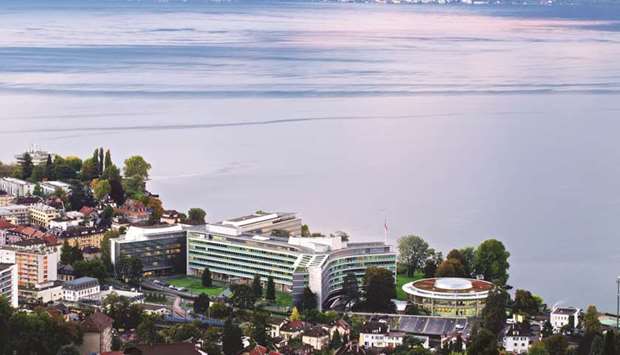Nestle said on Thursday it would consider new owners for its dermatological business, a unit with $2.8bn in annual revenue that chief executive officer Mark Schneider said may no longer fit with the company’s overall strategy of focusing on products such as coffee, water and pet food.
That led analysts such as Andreas von Arx at Baader Helvea to speculate that a long-awaited divestment of L’Oreal may come up for discussion. Schneider is stepping up the pace of change, having also announced a bond sale and the divestment of an insurance business in a flurry of deals this week. Breaking ties with the French cosmetics giant is one of the main remaining issues that activist investor Dan Loeb has been lobbying Nestle about.
“We see this as a symbol of willingness to slay sacred cows,” wrote Martin Deboo of Jefferies. Schneider is making a “highly symbolic break” from his predecessors.
Facing pressure from Loeb to focus on its mainstays, Nestle has bought and sold businesses at an accelerated pace in the past year. Selling the dermatological brands means dismantling a business that former CEO Paul Bulcke touted as a promising new avenue of growth.
Analysts are divided on how much Nestle could get from the skin health unit. Deboo estimates 4bn francs ($4.1bn), saying the few plausible options include a sale to L’Oreal or a leveraged buyout. Alain Oberhuber, an analyst at MainFirst, estimated it could fetch as much as 8bn francs, as the business may appeal to Johnson & Johnson or Japan’s Shiseido Co.
Schneider has called Nestle’s stake in L’Oreal a “fabulous investment,” and has resisted calls to announce a divestment. The stock has gained 12% in the past year, outperforming Nestle’s shares.
Nestle Skin Health makes products ranging from acne treatments to injectable skin fillers that compete with Botox. The unit has been a weak spot for the company due to generic competition, and is cutting hundreds of jobs and closing sites.
“One of the CEO’s top priorities at the beginning of his mandate was to stop the hemorrhaging,” Jean-Philippe Bertschy, an analyst at Bank Vontobel AG, wrote in a note. The unit had engaged in “record value destruction in the past four years,” and now Nestle is “executing like a metronome.” Nestle shares rose as much as 0.7% in early trading. They’re little changed from where they were before Loeb announced his stake in June last year.
The skincare business was built out of a joint venture called Galderma that Nestle formed with L’Oreal in 1981. Nestle paid the French cosmetics maker more than $3bn to buy the business out in 2014 and in the following months paid a further $1.4bn to buy a portfolio of skin-care drugs from Valeant Pharmaceuticals.
This week Nestle agreed to sell Gerber Life Insurance to Western & Southern Financial Group for $1.55bn as it considers such financial products outside its main business. The company also sold $8bn of bonds to help fund its alliance with Starbucks Corp.
The food company said the review should be complete by the middle of next year.

